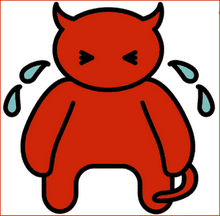skip to main |
skip to sidebar
 The White Stripes
The White Stripes
Icky Thump
[Rock]
Ever since the follow up to runaway success "Elephant", "Get Behind Me Satan", defied expectations and split opinions, all eyes focused on Detroit blues-rockers The White Stripes to see what direction they'd go in next. The answer; a partial climbdown. New album "Icky Thump" may feature many an experimental element, but it's closer by far to the stripped down garage rock of "Elephant" than the wild experementalism of "Satan"'s marimba, bluegrass, backward drum loops and thirty second tracks.Oddly, title track opener and lead single "Icky Thump" is one of the most adventurous pieces on the record; although it's driven by the kind of raucous, righteous guitar lick and atypically political lyrics ("White Americans, what, nothing better to do? / Why don't you kick yourself out, cos you're an immigrant too") that propelled it, somehow, to number two in the charts. Second single "You Don't Know What Love Is (You Just Do as You're Told)" marries some witty, satisfying lyrics to a more conventional musical structure, making it a more obvious choice of single. It's only by third track, "300 mph Torrential Downpour Blues" that you get the slightest feeling you've heard it all before; could the Stripes be falling into a rut? Thankfully, a tremendously bombastic version of "Conquest", complete with spanish horns, reassures that the will to dabble is still theirs. "Bone Broke", unfortunately, is really a very archetypal White Stripes song, with little to distinguish it from many others; thumping monosyllabic drums and Jack's impassioned screeches. "Prickly Thorn, but Sweetly Worn" however, twists the listener back into a world of surprises; this time they drag out the pipes for what sounds like a scottish folk song. It's followed by a short snippet of experimental nonsense, more self indulgent outro than song, entitled "St. Andrew (This Battle Is in the Air)"; a mercifully short bout of Meg talking about not very much over increasingly erratic music. Then it's back to the classic approach for the rest of the album; "Little Cream Soda" is perfectly serviceable. "Rag and Bone" provides a pleasant surprise and personal favourite as Jack and Meg summarise their philosophy as musical recyclers by literally masquerading as rag and bone collectors. Then for the last four tracks, the band alternates between two strident, adrenaline filled jams ("Catch Hell Blues" and "I'm Slowly Turning Into You"), and the sweet, quiet, ballad "A Martyr For My Love For You" which is complimented by the satisfying closer "Effect and Cause"; suberbly constructed lyrics about a well known fallacy which dovetail into a love story of sorts. This is not an album which matches "Elephant"'s consistency or "Satan'"s spirit of adventure; in fact, the best word to describe it is "Solid". Solid songs, solid construction, solid lyrics, solid musicianship, solid Stripes.80
 Take 2 Boston/Australia
Take 2 Boston/Australia
Bioshock
[First-Person Shooter]
Adored by new games journalists everywhere, Bioshock launched last month amidst a snowstorm of hype, and, by all accounts, fulfilled it's lofty expectations in terms of both sales and critical acclaim. So why, in case you've been living under a gaming rock, has Bioshock been heralded the poster boy of intelligent games? Well, for one, it's been marketed (really well) as the spiritual successor to System Shock; a story-based sci-fi fps-rpg whose critical regard was only matched by the incompetence with which it was sold to the gaming public. Then there's the fact that behind the shooting and the mutants there's a story so well crafted, and so imbued with philosophical and political significance that it should be the final insult to anyone who believes videogames cannot be art.
In 1960, the player finds themselves the victim of a plane crash in the middle of the Atlantic, and takes shelter in a lighthouse, which contains a bathysphere that transports them thousands of feet under the sea to an underwater city; Rapture.
It transpires that Rapture is the work of one Andrew Ryan, a Kane-esque tycoon who has built the city in order to create an idealistic utopia where the best and brightest should not be constrained by government meddling or the ignorance of the masses; in the words of Ryan himself; "A city where the artist would not fear the censor. Where the scientist would not be bound by petty morality. Where the great would not be constrained by the small."
The most eagle eyed of readers might have noticed the similarity of his name to thinker Ayn Rand, who created the philosophy of objectivism; and indeed, the whole story stands as an examination of that viewpoint; it's merits; it's fallacies; the idealists who make it attractive; and the brutes who destroy it. There is more depth and food for thought in the relatively simple storyline than a dozen Gears of War.
Of course, when the player finds themselves in Rapture, the dream is dead. Thanks to a sea sponge which creates stem cells, the inhabitants of Rapture are able to indulge in instant genetic modification, and by the time of your arrival, most of them are addicted to "Adam", the raw material behind their gene splicing, and are utterly batshit, forming the bulk of the enemies you battle. The city has descended into first civil war and then utter anarchy, and the now desperate, unstable Ryan's dream lies in tatters. You'll also encounter the uniquely disturbing pairing of "Little Sisters", brainwashed little girls trained to extract Adam from corpses, and "Big Daddies"; post-human protectors looking like a cross between deep sea divers and hulking mechs. The player can pick a fight with these ferocious defenders in order to either save the Little Sister, removing the controller parasite from her body, or harvesting her Adam, effectively killing the little girl but giving the player a better shot at survival.
The world of Rapture is one of the most unique and compelling created in a work of fiction, let alone a videogame. The city is a 1930's art deco / steampunk edifice, complete with water based computing devices that can be hacked by diverting the water flow, period boutiques and deliciously retro posters reminiscent of classic ads or wartime propaganda. The world slowly unfurls, introducing the player to almost completely distinct areas of the city, and filling in the backstory by the discovery of audiologs left behind by the city's inhabitants.
The only criticisms I can level at Bioshock are gameplay ones; the game feels unbalanced at times, the wrench being a more useful weapon than all the guns you acquire, and the difficulty curve is odd; the game actually gets easier the more you progress. Chuck in almost instant "respawning" after death, and the game feels almost unsatisfyingly easy and dumbed down in comparison with it's predecessor, especially the RPG elements, which now simply consist of choosing the different plasmids (read; genetic superpowers) and gene tonics (always active enhancements) you can equip your character with. Nonetheless, there is an astonishing range of these, and they're all highly entertaining; sending a swarm of insects after an enemy then freezing them before smashing them with a wrench never gets old. The guns all have a range of different ammo types, which make a real difference to the gameplay, and the enemies behave intelligently; hiding on ceilings, using health stations, infighting and so forth; one of my favourite strategies was to use a plasmid to "hypnotise" a Big Daddy into acting as a bodyguard, then siccing it on another Big Daddy, giving a risk-free takedown. On a technical level, the game is superb, especially the water effects, although irksomely, if you're playing the PC version, you'll find a lack of support for SM2 video cards; however, community made patches solve this and get excellent framerates.
Of special merit is the glorious sound design, and a period soundtrack which evokes the world as well as the art does. Nothing compares to hearing the dull roars and floor-shaking stamps of a Big Daddy as you battle it to the strains of "Papa Loves Mambo".
As if this wasn't enough, two thirds of the way through the plot kicks into high gear, and explains neatly a couple of things you might have dismissed as clumsy or tiresome. It flips genre cliches on their head in a way that makes the fourth-wall breking of Metal Gear Solid look gauche in comparison. I want to say as little as I can about this game, simply because it must be experienced firsthand in it's entirety. Don't expect perfection, but do expect to be stunned.
96
 The White Stripes
The White Stripes


